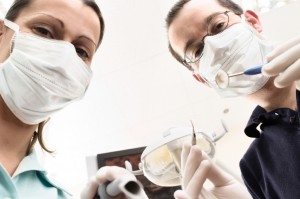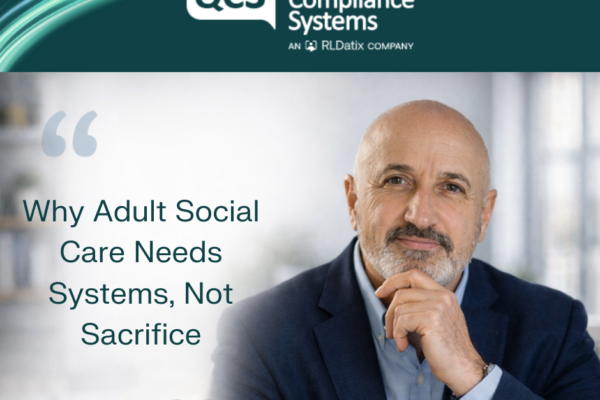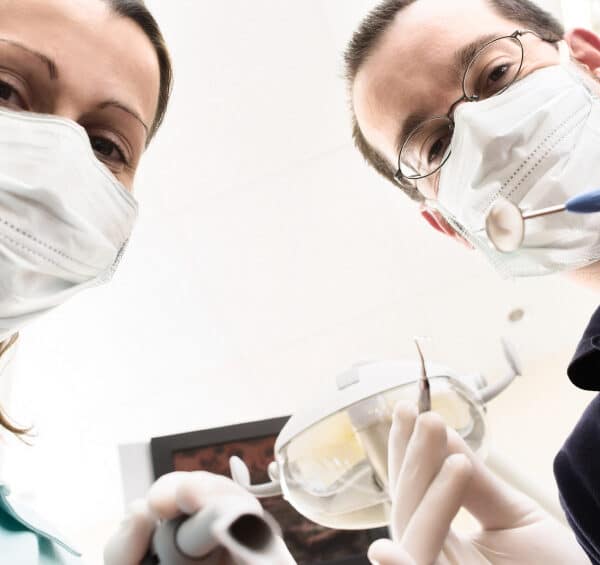 Last week, I had the good fortune to be struck down with an acute dental problem. For several days I was in pain which could not be fully controlled and I had a temperature which made me feel lousy. You know when patients say ‘please just take it out’, well that was the place I was in. A colleague opened and dressed my tooth in traditional manner, but it still took a few days to settle. ‘Good fortune?’ you might ask.
Last week, I had the good fortune to be struck down with an acute dental problem. For several days I was in pain which could not be fully controlled and I had a temperature which made me feel lousy. You know when patients say ‘please just take it out’, well that was the place I was in. A colleague opened and dressed my tooth in traditional manner, but it still took a few days to settle. ‘Good fortune?’ you might ask.
Yes, because it gave me the opportunity to experience things from a patient’s point of view.
GDC Guidelines
The new General Dental Council Standards, section 1.2.3, says “You must treat patients with kindness and compassion.” They have used the word ‘must’ rather than ‘should’ which means this something with no leeway. It might seem a bit obvious that as practitioners of healthcare we should be using compassion and empathy in our approach to treatment. It is accepted that ‘best practice’ is achieved through a Person Centred approach and all the messages from the GDC are that this the only way they will accept. The basic tenets of the Person Centred ethos are –
- Congruence – our willingness to openly relate to patients without hiding behind a professional facade.
- Unconditional Positive Regard – we offer an acceptance of, and value for, the patient for who he/she is without conveying disapproving feelings, actions or characteristics and demonstrate a willingness to attentively listen without interruption or judgement.
- Empathy – we communicate the desire to understand and appreciate the patient’s perspective.
In the day-to-day, hour-to-hour and minute-to-minute pressure of practice life, it is easy to lose focus on these core values. In addition, the GDC Standards also say “You should be aware of how your tone of voice and body language might be perceived.” During a busy (and quite often chaotic) day, our voice and body language can start to take on element of desperation! To be pedantic, there are two different words in play through this approach – compassion and empathy. However, there is one of these values which we can begin to practice with every encounter.
Empathy
The dictionary definition of empathy is “the power of understanding and imaginatively entering into another person’s feelings”. In other words, to see through their eyes and to try to imagine what they are going through. I have found that daily practice can help bring about the perspective shift of being able to look through other people’s eyes. This is a deeply important skill to develop in order to inform ourselves and to elevate the quality of treatment and care we deliver.
The very first change to make is to actually sit in the dental chair and experience life from this new angle. It is surprising how this simple activity can give you an inkling of the patient’s experience. You might also spot the peeling paint, dusty shelf and other things that you can’t see from your stool! Healthy perspective-shifting also includes:
- Understanding that patients behaving in a grumpy way, or even angry, are fearful of their position. It might not be about you personally.
- Making the effort to see a situation through your patient’s eyes continually during treatment, with all the possibilities for discomfort, loss of dignity and loss of control over what is happening to them.
- Taking the time to listen to patient’s stories to really understand their needs.
This shift is important in evolving and growing within your personal practice, but we need to do it consciously and mindfully.
Compassion
The GDC Standards use the word ‘Compassion’. This is defined as “a feeling of distress and pity for the suffering or misfortune of another, often including the desire to alleviate it”. The meaning behind the word takes the Person Centred Practice up to another level. We are not just identifying ourselves with the patient’s predicament, but we are also wanting to do something about it.
This means caring about our patients as people. When someone comes over the threshold of the practice we are under a responsibility to elevate them to the same status as close friends and relatives. This might seem challenging to many practitioners, but just for the length of an appointment we have to look into their eyes and care about how they are, who they are and what their future health is going to be like. So, another angle is that we should be able to look through their eyes as well as look them in the eye.
There seems to be a conflict here in the professional relationship between patient and practitioner. It exists in the perceived need to keep a ‘professional’ distance between us and patients whilst at the same time inviting them into our space with the intention of providing personal care. However, in order to meet our responsibility as registered health care professionals we have to come to terms with this dilemma and find a way of treating patients with compassion during the treatment period and then passing that compassion on to the next patient on the day-list. Tall order? Absolutely, but let’s meet the challenge.
Put ourselves in their place
Just to recap. As I started this off with telling you about my own experience, I should say that this is one way of helping meet the challenge. Use any past experiences you have in order to help understand how patients are feeling. Of course, not every dentist will know what it is like to have a filling, an extraction or a root filling. If you don’t have this memory bank to draw from, you have to use your imagination and everyone will have their own way of being inspired in this direction. My suggestion is to imagine looking through their eyes, see what they see, feel what they feel. Another way is to treat patients as though they are a close relative, your mum or sister, your brother or father. Choose someone you really care about. Person Centred Practice should be the ‘gold standard’ for everything we do.





